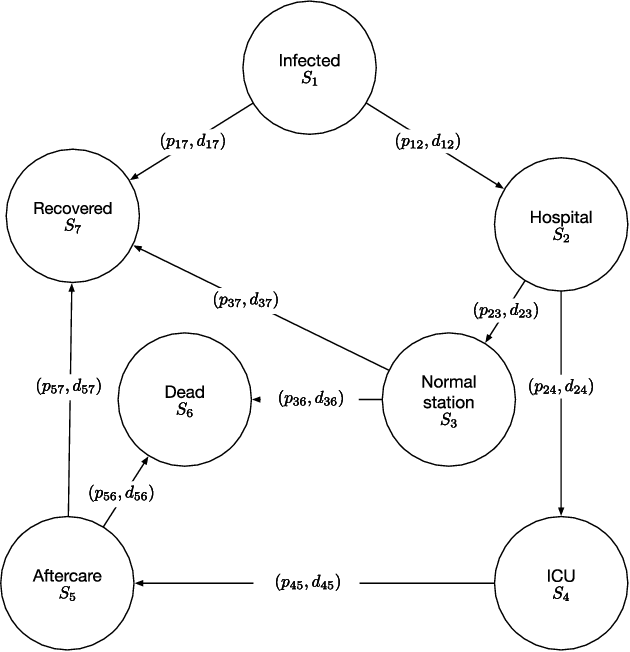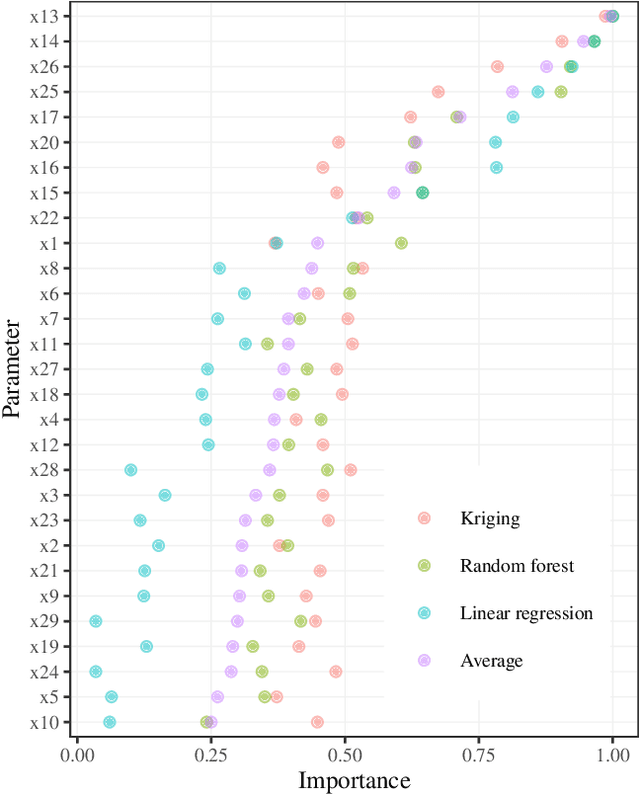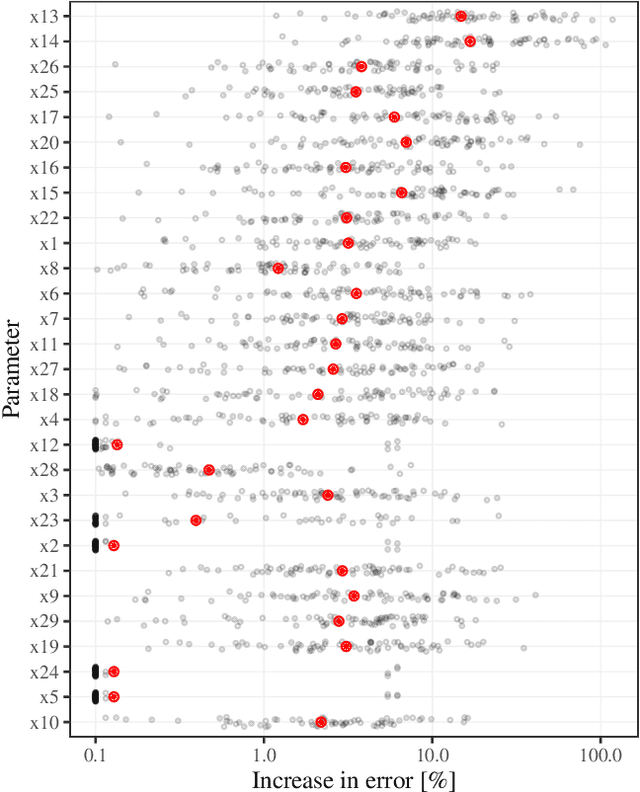Dessislava Peeva
Resource Planning for Hospitals Under Special Consideration of the COVID-19 Pandemic: Optimization and Sensitivity Analysis
May 16, 2021



Abstract:Crises like the COVID-19 pandemic pose a serious challenge to health-care institutions. They need to plan the resources required for handling the increased load, for instance, hospital beds and ventilators. To support the resource planning of local health authorities from the Cologne region, BaBSim.Hospital, a tool for capacity planning based on discrete event simulation, was created. The predictive quality of the simulation is determined by 29 parameters. Reasonable default values of these parameters were obtained in detailed discussions with medical professionals. We aim to investigate and optimize these parameters to improve BaBSim.Hospital. First approaches with "out-of-the-box" optimization algorithms failed. Implementing a surrogate-based optimization approach generated useful results in a reasonable time. To understand the behavior of the algorithm and to get valuable insights into the fitness landscape, an in-depth sensitivity analysis was performed. The sensitivity analysis is crucial for the optimization process because it allows focusing the optimization on the most important parameters. We illustrate how this reduces the problem dimension without compromising the resulting accuracy. The presented approach is applicable to many other real-world problems, e.g., the development of new elevator systems to cover the last mile or simulation of student flow in academic study periods.
 Add to Chrome
Add to Chrome Add to Firefox
Add to Firefox Add to Edge
Add to Edge